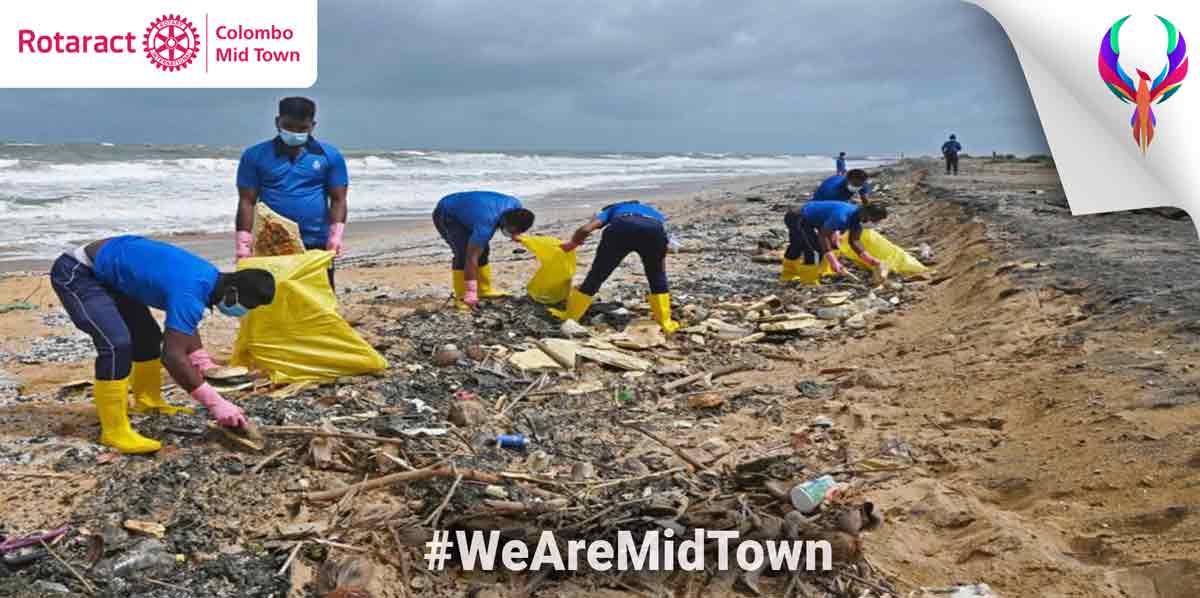The current topic on everyone’s minds in Sri Lanka right now is the MVX Press Pearl explosion that occurred on the 27th of May 2021, this week. As news circulates through the hashtag #MXPressPearl; people have been outraged by the environmental pollution caused, the authorities in question and the legalities regarding compensation for Sri Lanka.

BRIEF BREAKDOWN
A cargo ship registered to Singapore departed from the port of Hazira, India on the 2nd of May set to arrive in Colombo, Sri Lanka on the 19th. Carrying goods, cosmetics and chemicals such as nitric acid, the full journey was from Malaysia to Qatar and Dubai, with Sri Lanka being a mid-way stop.

India joined the task force with coast guard vessels and maritime reconnaissance aircraft for containment efforts. The 25 members of the ship were evacuated, two of whom were of Indian nationality currently being treated at the National Hospital. On the 29th of May, flames were finally doused.
COMPENSATION & LEGALITIES
The majority of the debate around this topic in the media seems focused on whether we will be properly compensated for both ship technicalities (nitric acid leakage) and the environmental impact. This is especially important because less than a year ago, we had a similar situation with a cargo ship ‘New Diamond’ although not as severe New Diamond resulted in an oil spill. Sri Lanka has been in 3 court cases regarding New Diamond for new areas of losses we’ve faced, all being discovered and collected sporadically over time. The need for a thorough investigation this time to quantify the consequences we are set to face is urgent and will act as a precedent for future maritime accidents such as this one.
Dr. Dan Malika Gunasekera has been sought after for his expertise in International Maritime Law, during this time. Regarding the cause of the incident, he has stated that investigating the nitric acid leakage and ship regulations from the current wreckage will be difficult. He instead emphasized that this is a good time as any to re-look and update our current maritime laws to reflect the vulnerabilities Sri Lanka’s coastal states will face as ships pass our hubs for commercial purposes in the future.
ENVIRONMENTAL CONSEQUENCES
Following the explosion, the public had been warned to stay away from the sea as debris and toxic waste will be washing up the shore and to beware of the consumption of seafood at this time. Regardless of this warning, however, many photographs surfaced on the internet of people ignoring the warnings and walking around the beach to “inspect” the disturbing amount of plastic pallets, boxes and dead fish washing the shore.
Organizations such as Wellness.org with a focus on Sri Lanka’s marine life have been on the scene and gathering data to understand both short and long-term implications of the explosion. They continue to share snippets of their research and engage with their audience, encouraging questions and discussion for the next step forward. Both Wellness.org and Dr. Dan Gunsekera have mentioned that despite toxic chemicals mixing in the water, the deeper problem is if there will be an oil spill from this ship and the collection of the plastic pellets that were released.
GLOBAL CONTEXT
Even though this issue is gaining a lot of attention for its consequences in the country, shipping container accidents overall have been occurring at a faster rate now than it has in the past 7 years – a result of the high demand of goods and faster delivery rates. (Bloomberg, 2021). Another reason is that fluctuating weather conditions such as cyclone Yaas that we were experiencing recently, create further challenges for the teams traveling.
CONCLUSION
There are many other aspects and speculations by the public that are politically and environmentally charged, however it seems like roads that we have already walked a long, often ending at a dead end. This incident has instead brought to light Sri Lanka’s critical role as a hubspot in commercial shipping and exposed how vulnerable we are if this were to occur again.
Our time and attention may be better spent focusing on how the MEPA (Maritime Environmental Protection Authority) will act in regard to the MV XPress Pearl incident and how we can improve the well-being of our fishermen, their families and our seas at a time like this.








